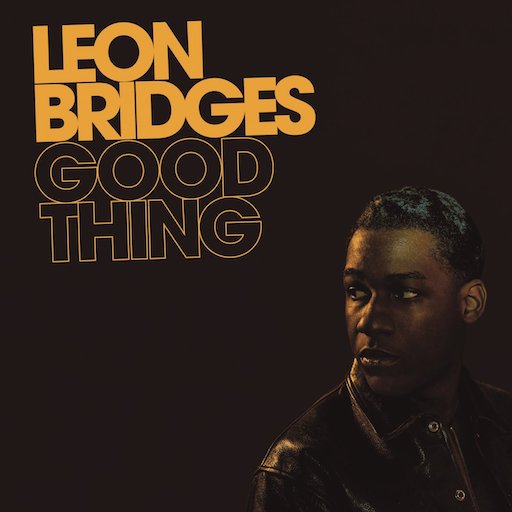Leon Bridges made waves in 2015 when his debut album, Coming Home, capitalized on the emerging popularity of R&B throwbacks in pop music by embracing them wholeheartedly. The result (which proved a good and bad surprise, depending on who was asked) was a collection of tracks that (Rhodes piano and all) emulated the style of fellow Texas native and soul legend Sam Cooke. Critical voices notwithstanding, Bridges rose to prominence on the heels of a style whose heyday had expired long before he was even born. Naturally, mining the same style on Good Thing would have been ill-advised.
It comes as a relief, then, that Bridges’ sophomore record is defined as much by its unwavering commitment to and influence by a long-standing retrospective of soul and R&B (though not confined to the 1950s this time around) as it is defined by a modernity which Bridges seems explicitly at home in.
Let’s start with the misses. The clap-snare riddled “You Don’t Know,” although not a bad song, is an example of a modernization in perspective only. The production, all bass and sharp strings, recalls explicitly the kind of late-’70s soul/disco fusion tracks that late-night television advertisers seem convinced were made to peddle fabric softeners and deodorant. We’re talking about the wet dream of whatever executive greenlit the inclusion of the Isley Brothers’ “Who’s That Lady?” in television spots advertising the Swiffer Sweeper Vac sometime in the early-2010s.
It’s not all bad news, however. “Mrs.,” an earnest soul ballad, blends perfectly the not-quite-played-out crooning Bridges seems intent on rejuvenating with a modern backing including tastefully-implemented vocal overdubs.
Other tracks which successfully update Bridges’ sound include “Lions,” a funky R&B piece just begging for a Kendrick Lamar feature, and “Georgia to Texas,” a ballad which is less R&B than it is blues. The interesting thing to note here is that neither of these tracks would have garnered much (if any) airtime back when radio made and broke record sales. Sure, Bridges steps (somewhat) out of Sam Cooke’s shadow and into his own shoes on Good Thing, but it’s hard to imagine any R&B record this domestic having any appeal with the Top 40 crowds.
Interestingly enough, both of Bridges’ current outings — a throwback record and a self-defining follow-up — could only have been marketable to a streaming crowd. There might be a quip in there about how our access to the endlessly specific pick-your-own-musical-adventure that is Spotify and Apple Music made it possible for artists like Bridges and the late Charles Bradley to find success outside of nostalgia acts (a path Bradley trod until just before his death, when a paltry three original releases cemented him as a giant of soul), but I don’t think so.
It’s the fact that you, the listener, can now explicitly choose what to connect to that gives musicians like Bridges a platform on which to compete against people like Drake. In the end, whether or not you support this kind of time-displaced musical endeavour is up to you.
I’d seriously recommend giving it a listen, though.


